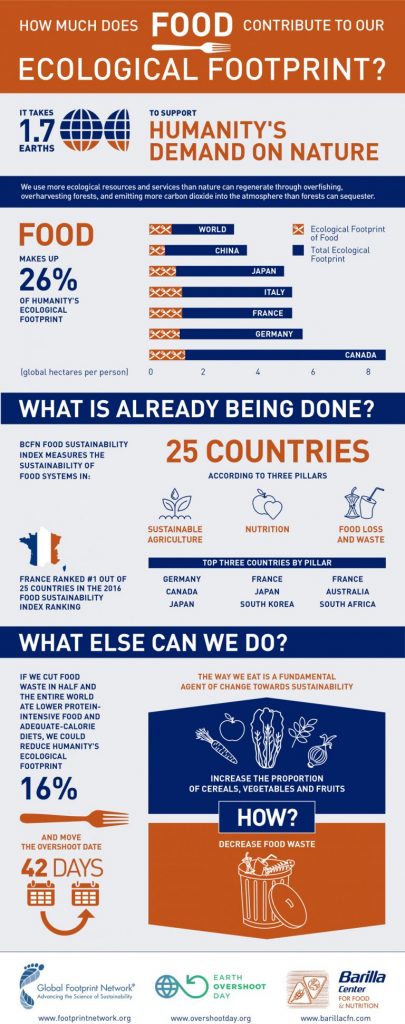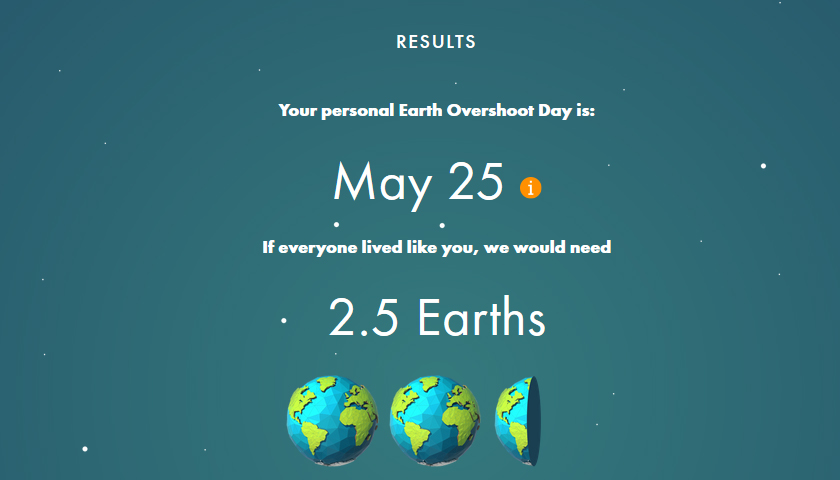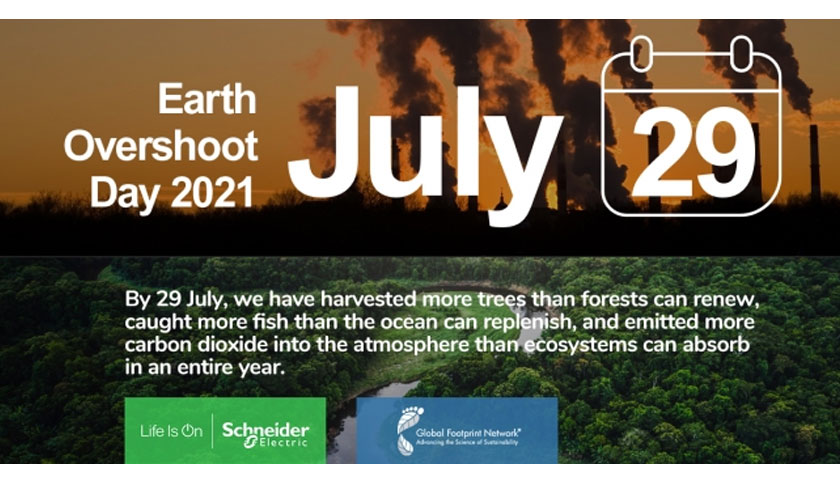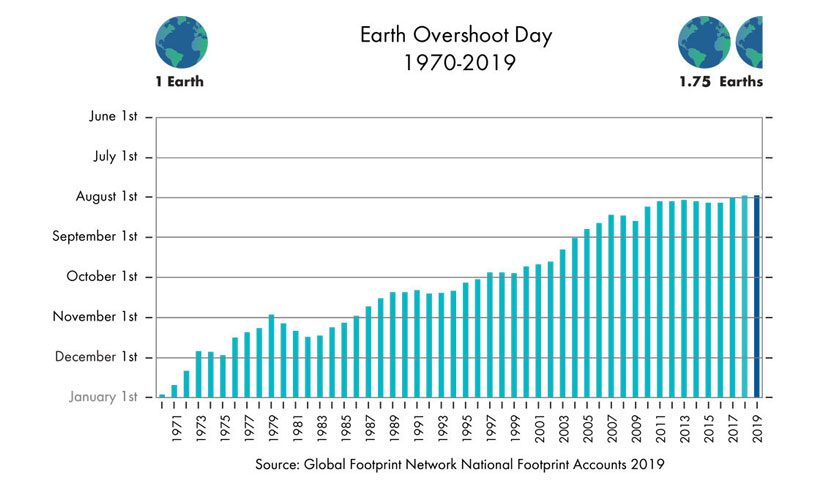Global Footprint Network, an international research organization, is marking Earth Overshoot Day with the launch of a new mobile-friendly Footprint calculator at www.footprintcalculator.org.
Earth Overshoot Day is the date when humanity’s annual demand on nature exceeds what Earth can regenerate over the entire year. This year Earth Overshoot Day falls on August 2, the earliest date yet.
The costs of this global ecological overspending include deforestation, drought, fresh-water scarcity, soil erosion, biodiversity loss, and the buildup of carbon dioxide in the atmosphere.
The new Footprint Calculator allows users to measure their own demand on nature (Ecological Footprint) and assess their personal Earth Overshoot Day. A user’s personal Earth Overshoot day is the date Earth Overshoot Day would be if all people had their Footprint.
A personal Earth Overshoot Day earlier than August 2 means your demand on nature is higher than the world average. If it is earlier than April 24, it is higher than Germany’s average; if it is earlier than March 14, it is higher than the US average.
#movethedate Solutions
For Earth Overshoot Day this year, Global Footprint Network, along with 30+ partners, is highlighting solutions and individual pledges to #movethedate. If we moved Earth Overshoot Day back 4.5 days every year, we would return to living within the means of one Earth before 2050; we are currently using 1.7 Earths. Reducing the carbon component of the global Ecological Footprint by 50% would move Overshoot Day by 89 days.
Food is another major Ecological Footprint driver. This year, Global Footprint Network collaborated with the Barilla Center for Food & Nutrition to create an infographic that showcases food-based solutions to lower the Ecological Footprint. Cutting food waste in half worldwide could move the date of Overshoot Day 11 days; eating less protein-intensive food worldwide could move Overshoot Day 31 days. A list of existing solutions that can collectively get us out of overshoot is available here.
“Our planet is finite, but human possibilities are not. Living within the means of one planet is technologically possible, financially beneficial, and our only chance for a prosperous future,” said Mathis Wackernagel, CEO of Global Footprint Network and co-creator of the Ecological Footprint. “We hope our new Footprint Calculator enables millions more people around the world to explore sustainability solutions and gain an uplifting sense of the possibilities available to society.”
More than 2 million people around the world used Global Footprint Network’s calculator last year, including students and educators.
New Calculator
The new Footprint Calculator goes beyond assessing users’ impact on the planet and carbon emissions. It allows users to play with options, learn about solutions, and connect to brief facts about sustainability. A person’s Ecological Footprint is the amount of productive surface area required to provide all he or she uses, including areas to produce food, fibers, and timber; to accommodate urban infrastructure, and to absorb carbon dioxide emissions from burning fossil fuel.
The new calculator, still a beta version, is only available in English, but future iterations will become country-specific, multi-lingual, and more playful. This first phase of the new calculator, was funded by MAVA Foundation and developed in partnership with Free Range Studios.
The new calculator is based on the latest data and methodology from Global Footprint Network, which tracks the ecological resource use and resource capacity of more than 200 countries and regions from 1961 to the present. These resource accounts draw primarily on United Nations data sets.

Links
http://www.footprintcalculator.org/
http://www.overshootday.org/newsroom/past-earth-overshoot-days/
http://www.footprintnetwork.org/



